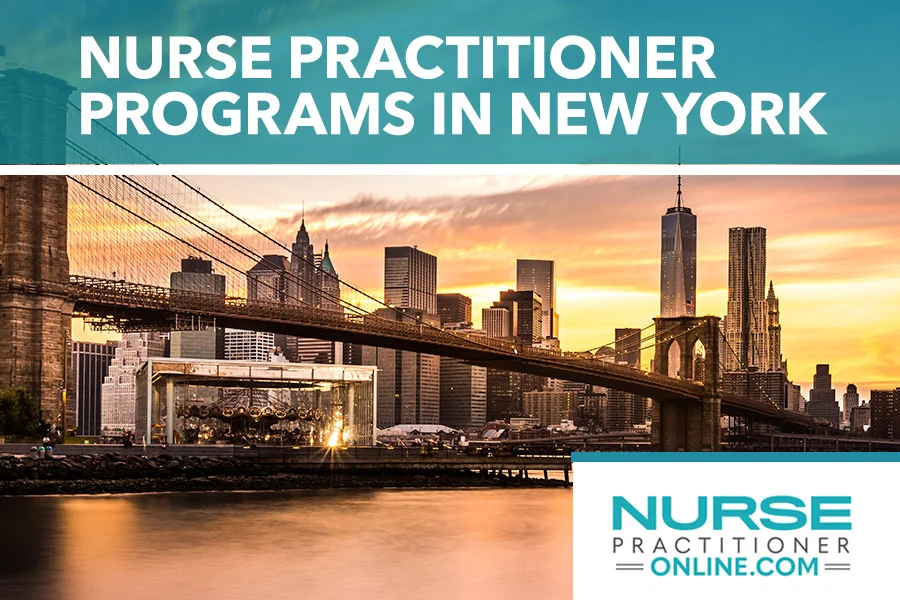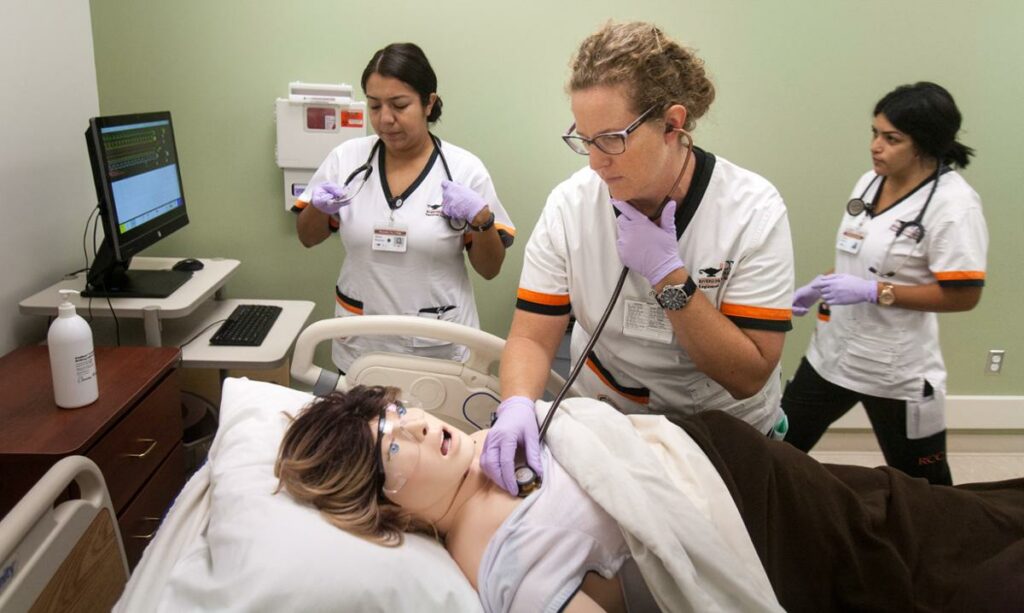Choosing the right nursing college is a pivotal decision that can shape your career and professional life. With a myriad of options available, understanding what to look for and how to make the best choice is crucial for aspiring nurses. This article will guide you through the process, offering insights into factors to consider, the application process, top nursing colleges, tips for success, and the future of nursing education.
Toc
Introduction to Nursing College

Nursing college is a higher education institution that provides specialized training to individuals pursuing a career in nursing. These colleges offer various programs, including practical nursing, registered nursing, and graduate studies such as masters or doctorate degrees. Attending a reputable and accredited nursing college is essential for students to develop the skills and knowledge required for this demanding profession.
Why Nursing College Matters
Choosing the right nursing college is vital for your future career. Attending a well-respected and accredited institution can increase your chances of securing employment, earning a competitive salary, and advancing in your career. Moreover, nursing colleges offer hands-on training, exposure to diverse clinical settings, and opportunities to network with fellow students and experienced professionals.
Factors to Consider
When considering a nursing college, several factors need to be taken into account. These include the program’s curriculum, class size, faculty expertise, clinical experience opportunities, accreditation status, and location. The program’s curriculum should align with your career goals and provide hands-on training through simulations or clinical rotations. The class size plays a crucial role in personalized learning and individual attention from professors. Faculty expertise is also essential as it influences the quality of education and mentorship.
Clinical experience opportunities are an integral part of nursing education as they allow students to apply their knowledge in real-world settings. It is crucial to research the college’s partnerships with healthcare facilities and the variety of clinical experiences offered. Additionally, ensuring that the nursing college is accredited by recognized organizations such as the Commission on Collegiate Nursing Education (CCNE) or the Accreditation Commission for Education in Nursing (ACEN) is vital, as it ensures quality education and eligibility for licensure. Lastly, location plays a role in terms of accessibility, cost of living, and potential job opportunities after graduation.
Factors to Consider when Choosing a Nursing College

When it comes to selecting the right nursing college, there are several important factors to consider:
Program Curriculum
The program curriculum is one of the most critical factors to examine when choosing a nursing college. A comprehensive curriculum should encompass both theoretical knowledge and practical skills, preparing students for the multifaceted nature of nursing. Courses should cover essential subjects such as anatomy, physiology, pharmacology, and patient care. Additionally, look for programs that incorporate advanced topics like healthcare policy, ethics, and leadership, which can broaden your scope of practice and readiness for various roles in the healthcare system.
Class Size and Faculty Expertise
Class size can significantly impact the quality of education you receive. Smaller class sizes often allow for more personalized instruction, greater interaction with faculty, and enhanced learning experiences. It’s beneficial to attend a college that maintains a low student-to-faculty ratio. Faculty expertise is another crucial factor; professors should have a wealth of clinical experience and academic qualifications. Investigate the faculty’s professional background, research interests, and their involvement in the nursing field to gauge the level of mentorship and expertise you can expect.
Accreditation
Accreditation is a hallmark of a quality nursing program. Attending an accredited institution ensures that the education provided meets national standards for nursing education. Accreditation bodies such as the Commission on Collegiate Nursing Education (CCNE) and the Accreditation Commission for Education in Nursing (ACEN) evaluate nursing programs based on their curriculum, faculty, resources, and student outcomes. Graduating from an accredited program is often a requirement for licensure and may also influence your eligibility for federal financial aid, scholarships, and employment opportunities.
Clinical Experience
Clinical experience is the cornerstone of nursing education. It allows students to apply classroom knowledge in real-world settings, develop hands-on skills, and gain exposure to different medical specialties. When assessing nursing colleges, inquire about the variety and quality of clinical experiences offered. Look for schools that have strong partnerships with reputable healthcare facilities, providing rotations in diverse settings such as hospitals, community clinics, and long-term care facilities. These experiences are invaluable in developing clinical competence and confidence.
Location and Cost
The location of the nursing college can influence your overall experience. Consider factors such as proximity to home, cost of living, and the availability of local job opportunities post-graduation. Urban colleges may offer more diverse clinical experiences and job prospects, while rural colleges might provide a more close-knit community and lower living expenses. Additionally, evaluate the overall cost of attendance, including tuition, fees, and other expenses. Explore financial aid options, scholarships, and grants to help mitigate the cost.
The Application Process for Nursing Colleges

The application process for nursing colleges can be competitive and rigorous. Here are some steps to help you prepare:
Research and Select Schools
Begin by researching various nursing colleges to identify those that align with your academic and career goals. Utilize resources such as college websites, nursing forums, and accreditation bodies to gather information about each program. Ensure that the schools on your list offer the specific nursing tracks or specializations you are interested in, whether it’s a Bachelor of Science in Nursing (BSN), Associate Degree in Nursing (ADN), or even advanced practice degrees.
Meet Prerequisites
Ensure you meet the prerequisites for the programs you’re interested in. This often includes completing necessary coursework in subjects like biology, chemistry, and anatomy. Some programs may also require relevant healthcare experience, which could be obtained through volunteering, internships, or working as a certified nursing assistant (CNA).
Prepare for Entrance Exams
Many nursing programs require entrance exams such as the TEAS (Test of Essential Academic Skills) or the HESI A2 (Health Education Systems, Inc. Admission Assessment). These exams assess your knowledge in areas like mathematics, science, and reading comprehension. Allocate time to study and prepare, using available resources and practice tests to increase your chances of scoring well.
Gather Application Materials
As you prepare your application, gather all necessary materials, such as transcripts, letters of recommendation, and personal statements. Be sure to follow the instructions provided by each school carefully and submit your application before the deadline.
Interviews
Some nursing programs will require an interview as part of the application process. This is an opportunity for the admissions committee to get to know you better and assess your communication skills, critical thinking abilities, and passion for nursing. Prepare for interviews by researching common questions and practicing with friends or family members. Dress professionally and arrive early on the day of your interview.
Top Nursing Colleges in the Country

Here are some of the top nursing colleges in the country, renowned for their programs, faculty, and clinical opportunities:
Johns Hopkins University School of Nursing
Johns Hopkins University School of Nursing consistently ranks among the best nursing schools in the nation. Located in Baltimore, Maryland, the school is renowned for its rigorous curriculum, state-of-the-art facilities, and an extensive range of clinical experiences. The program emphasizes evidence-based practice, research, and leadership, preparing students for advanced roles in healthcare. Students benefit from close proximity to the prestigious Johns Hopkins Hospital, allowing for unparalleled hands-on training.
University of Pennsylvania School of Nursing
The University of Pennsylvania School of Nursing, situated in Philadelphia, is another premier institution known for its commitment to excellence in nursing education. UPenn offers a variety of programs, from undergraduate to doctoral levels, all designed to develop clinical expertise, critical thinking, and ethical leadership. The school boasts a low student-to-faculty ratio, encouraging personalized mentorship and support. Its robust research initiatives and partnerships with top-tier medical facilities make it an ideal choice for aspiring nurses.
University of California, San Francisco (UCSF) School of Nursing
UCSF School of Nursing in California is acclaimed for its cutting-edge research and dedication to improving healthcare through innovation. The school’s programs are designed to address complex healthcare challenges and equity, fostering a diverse and inclusive learning environment. With access to prominent hospitals and research centers, students gain extensive clinical experience and have opportunities to engage in groundbreaking research projects.
Duke University School of Nursing
Located in Durham, North Carolina, Duke University School of Nursing is celebrated for its comprehensive nursing programs and influential research initiatives. The curriculum integrates advanced nursing practice, leadership, and interprofessional education, equipping students with the skills needed for dynamic healthcare settings. Duke’s affiliation with the Duke University Health System enables students to participate in high-quality clinical rotations and benefit from strong mentorship and networking opportunities.
New York University (NYU) Rory Meyers College of Nursing
NYU Rory Meyers College of Nursing in New York City offers a dynamic urban learning environment with access to world-class medical centers. The school provides a wide range of degree programs and specializations, catering to various career aspirations in nursing. NYU places a strong emphasis on social responsibility, culturally competent care, and global health, preparing graduates to meet the diverse needs of patients in a rapidly changing healthcare landscape.
Each of these top nursing colleges provides a unique blend of academic excellence, clinical training, and research opportunities, making them ideal for those seeking a comprehensive and impactful nursing education.
Case Studies and Personal Stories

Sarah’s Journey to Becoming a Nurse Practitioner
Sarah’s path to becoming a Nurse Practitioner (NP) began with a deep-seated passion for helping others. Starting as a Certified Nursing Assistant (CNA) at a local hospital, she quickly realized her desire to further her education and make a more significant impact in patient care. Sarah pursued an Associate Degree in Nursing (ADN) while working as a CNA, and after graduation, she began her career as a Registered Nurse (RN) in an Intensive Care Unit (ICU).
After gaining experience in critical care, Sarah decided to pursue a Master of Science in Nursing (MSN) with a specialization in Family Nurse Practitioner (FNP). She continued working as an RN while completing her graduate studies and sought out opportunities to gain clinical experience in primary care settings. Upon graduation, Sarah passed the national certification exam to become a licensed FNP.
Sarah now works at a primary care clinic, providing comprehensive healthcare services to patients of all ages. She loves being able to build long-term relationships with her patients and make meaningful impacts on their health and well-being. Her journey from CNA to NP has been filled with challenges, hard work, and determination, but Sarah knows that it was all worth it to achieve her dream of becoming a healthcare provider.
Alex’s Experience in a DNP Program
Alex had always known she wanted to pursue a Doctorate in Nursing Practice (DNP) degree. After earning her BSN and working as an RN for several years, she decided to take the next step in her education. She chose to attend a DNP program at a prestigious university, determined to become an expert in advanced nursing practice and make significant contributions to healthcare.
The DNP program was intense and demanding, requiring extensive coursework, clinical hours, and research projects. Despite the challenges, Alex thrived under the mentorship of experienced faculty and the support of her classmates. Her program included a capstone project focused on improving patient outcomes in critical care, which gave her the opportunity to collaborate with interdisciplinary teams and implement evidence-based practices.
Upon graduation, Alex was confident in her skills as a healthcare leader and advocate for change. She now works as an Acute Care Nurse Practitioner (ACNP) in a busy hospital setting, utilizing all that she learned during her DNP program to provide high-quality, patient-centered care.
Conclusion
Sarah’s and Alex’s stories illustrate the diverse pathways and rewarding experiences that a career in nursing can offer. Despite the rigorous training and the multifaceted challenges they faced, both found profound fulfillment in their respective roles. Their journeys showcase the impact that dedication, continuous learning, and resilience can have on both personal and professional development in nursing.
For those considering a similar path, it’s crucial to research and choose a nursing program that aligns with your goals and values. Whether you’re aspiring to become a Nurse Practitioner like Sarah or aiming for advanced practice and leadership through a DNP program like Alex, the right educational environment will equip you with the necessary skills and knowledge to excel. Moreover, embracing lifelong learning and being open to various professional experiences can immensely enrich your nursing career, making a significant positive impact on patient care and the broader healthcare system.
Ultimately, the field of nursing offers endless opportunities for growth, innovation, and making a difference in the lives of individuals and communities. With a blend of compassion, expertise, and a commitment to excellence, aspiring nurses can find a path that is both professionally rewarding and personally meaningful.











